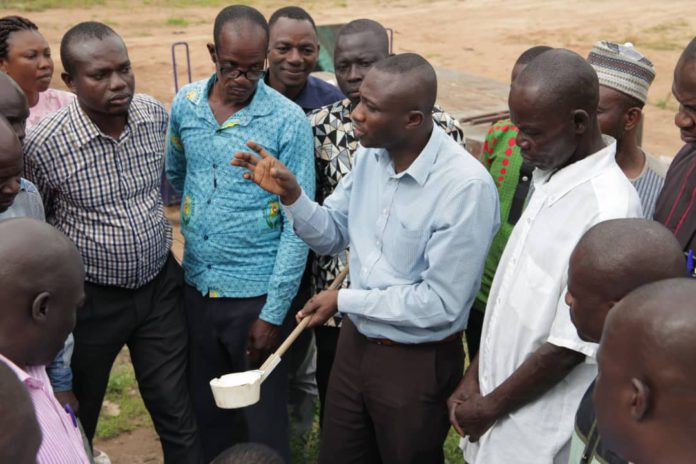
Staff of waste management company, Zoomlion Ghana Limited, and environmental health officers drawn from various districts of the Upper West and Upper East regions have been trained in effective larval source management in their areas.
Larval source management is used in controlling malaria breeding in aquatic habitats to reduce mosquito population and vector-borne diseases.

The training, conducted by a technical team from Nugochi Memorial Institute for Medical Research of the University of Ghana, was under the aegis of the Vector Control unit of Zoomlion and the Ministry of Health.
The participants were made up of Malaria Focal Persons of the Municipal and District Assemblies, Health Promotion Officers, District Environmental Health Officers and staff of Zoomlion Ghana Limited among others.

Participants were taken through effective larval source management, mapping of water bodies to demarcate potential mosquito breeding sites and the deployment of application software for vector surveillance among others.
A molecular entomologist with Nugochi, Dr Kwadwo Kyereme Frempong, who led the session on effective larvae source management, explained that anopheles mosquitos do not only transmit malaria but also elephantiasis.
He said it is, thus, important to use Bacillus thuringiensis var israelensis (Bti), a WHO recommended drug that is certified as being efficient against mosquito larvae and safe for aquatic lives.
Dr Frempong explained that more than half of the world’s population lives in areas with mosquito species that transmit deadly diseases, hence the need to sustain mosquito control efforts to prevent outbreak of diseases.
Key mosquito types such as anopheles, aedes, and culex, he indicated, are of public health concern which need to be managed effectively.
“The peak hours for mosquito bites ranges from 6:00pm to 10:00pm and most of the biting occurs outdoor. The public should take note and watch their lifestyle during these hours,” he pointed out.
A Vector Control Technical Officer of the National Malaria Control Programme, Mr Christian Atta- Obeng took participants through how to map the various breeding sites of mosquitoes, identified ponds, stream fringe, water channels, rice fields, end of flood water among others as breeding sites for mosquitoes.
He underscored the need to target and apply the best approach to kill the mosquito larvae.
Head of Vector Control Unit of Zoomlion, Rev. Ebenezer Kwame Addae, entreated all participants to efficiently deploy the scientific knowledge gained on effective larval source management in their various localities to improve health conditions of residents.
The Upper West Regional Health Director of the Ghana Health Service, Dr Osei Kuffour Afreh, indicated that partnership of this form is in line with the SDGs goal 17.
He urged all stakeholders in delivering Vector Control services to be good partners.
He said malaria prevalence in the Upper West Region is relatively low as a result of many interventions such as mosquito bed net distribution, in-door residual spraying among others implemented in the region.
Dr Afreh added that larviciding comes as a supplement intervention to complementing existing core interventions for malaria control.
